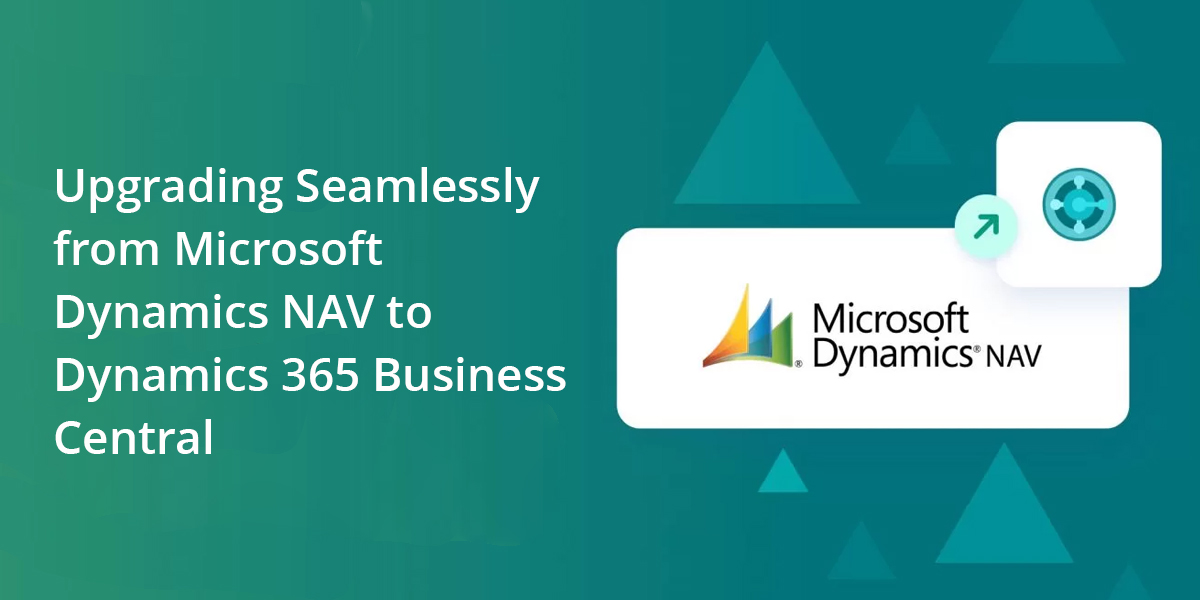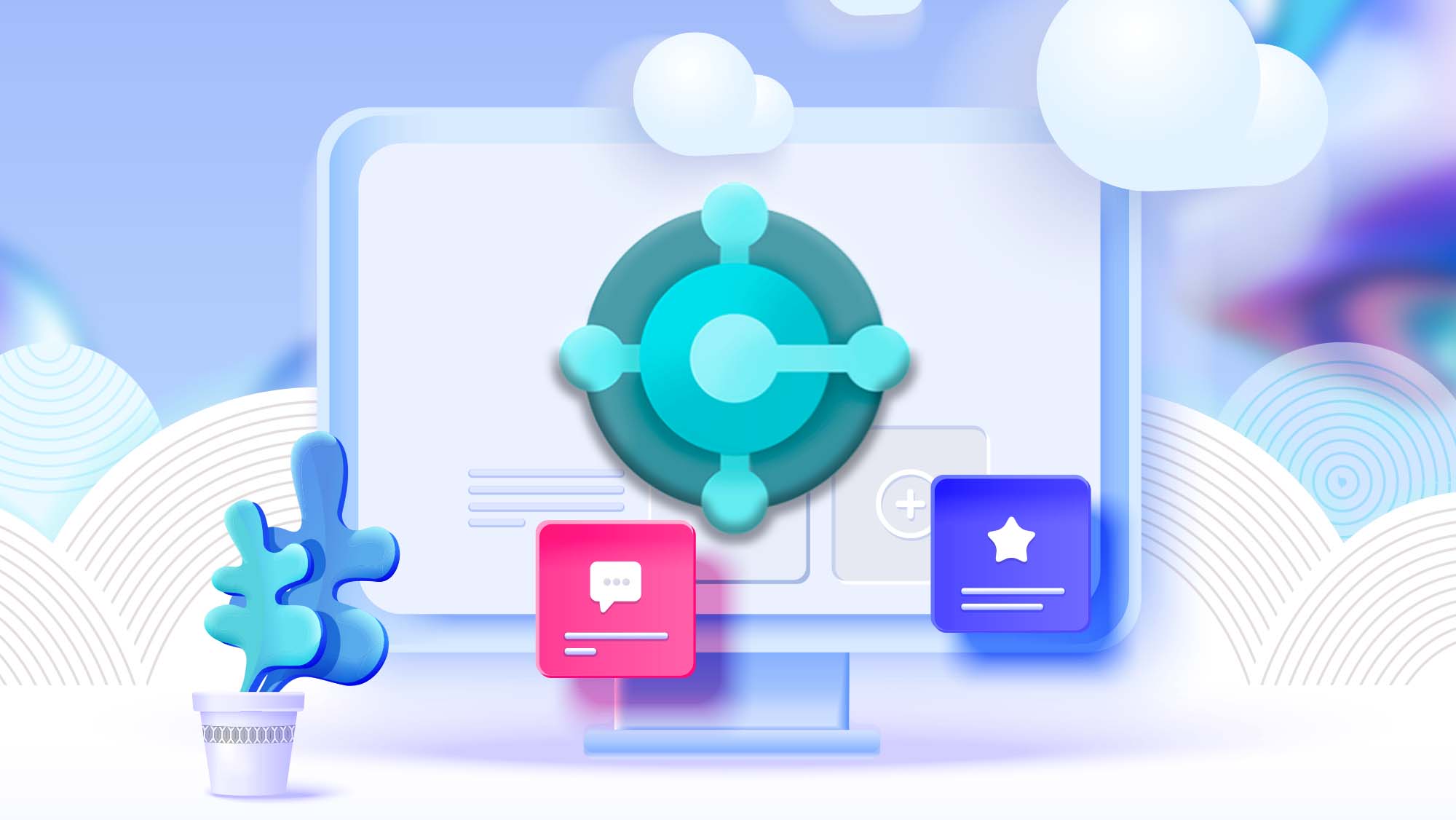Table of Content
Customers currently using Dynamics NAV like you and considering an upgrade to Dynamics 365 Business Central are going to encounter big choices ahead. This write-up is designed by our Dynamics 365 technical consultant to help you understand your options, minimise any disruptions and guide your team through the upgrade process smoothly. Here are we going to cover everything starts from
Challenges associated with NAV
- The Right Time to Upgrade
- Benefits of Upgrade
- Business Central Licensing
- How long does Upgrade take?
- Best Local Microsoft Certified Partner in Australia for Upgrade
- Financial Management
- Supply Chain Management
- Human Resource Management
- Warehouse Management & Inventory
- Project Management
- Customer Relationship Management
- Service Order Management
- Manufacturing
- Company: Vivin Imports
- Industry: Wholesale Distribution (Furniture)
- Location: Australia
- Organisation Size: 100-150 Employees
- Outdated System: Dynamics NAV 2015 lacked modern features and integrations, leading to inefficiencies.
- Scalability Issues: The existing system could not scale effectively with the company's growth.
- Performance Concerns: Slow processing times and system downtime affected productivity.
- Compliance and Security: Increasing regulatory requirements necessitated a more secure and compliant system.
- Manual Processes: High reliance on manual data entry and reporting caused errors and delays .
- Reduced manual processes by 40%, leading to fewer errors and faster processing times.
- Enhanced inventory management, resulting in a 15% reduction in Inventory carrying costs.
- Improved financial visibility and accuracy with real-time data reporting.
- Decreased month-end closing time from 10 days to 5 days.
- Achieved 99.9% system uptime, significantly reducing downtime and improving productivity.
- Enhanced system performance with faster processing times, improving overall efficiency by 20%.
And there's plenty more helpful information about the upgrade waiting for you in upcoming sections of this blog. Keep an eye on this write-up and settle in with a cup of coffee or tea for some enjoyable reading. Let’s get started:
A Brief Recap of Dynamics NAV and the Challenges it Brings
Dynamics NAV, formerly known as Navision, is an enterprise resource planning (ERP) software designed for small and medium-sized businesses. This comprehensive solution offers functionalities for financial management, supply chain management, manufacturing, sales and customer relationship management.
However, despite its robust features, Dynamics NAV users encounter several challenges that impact their operational efficiency and effectiveness.
Here are some of the significant challenges faced by Dynamics 365 Users:
1.Lack of Scalability:As businesses grew and evolved, Dynamics NAV failed to accommodate increasing data volumes and complex business processes, resulting in performance issues and decreased productivity.
2.Limited Customisations: The system's limited customization capabilities hinder organizations from tailoring the software to meet their specific needs, leading to workflow inefficiencies and suboptimal outcomes.
3.Integration Issues: Dynamics NAV users often face difficulties with integration. The system may not seamlessly integrate with other applications or third-party solutions, causing data silos and hindering cross-functional collaboration.
This fragmentation of information impedes decision-making and reduces the agility of the organization in responding to market demands and competitive pressures.
4.Maintenance & Support Issues: Maintenance and support can be challenging for Dynamics NAV users, particularly as Microsoft shifts its focus towards newer ERP offerings such as Dynamics 365 Business Central.
This transition may leave users with limited access to updates, patches, and technical assistance, increasing the risk of security vulnerabilities and system downtime.
Do these challenges ring a bell for your SMB?
If yes, your SMB also calls for an upgrade to Business Central!!
Now you might be Looking for a quick comparison of Dynamics NAV and Dynamics 365 Business Central. Doesn’t it so? If yes, why wait longer? Check out our next section immediately for a detailed table that highlights the key differences.
Quick Comparison Between Dynamics NAV & Business Central
This table highlights the key differences between Dynamics NAV and Dynamics 365 Business Central, showcasing the advancements and additional benefits offered by Business Central.
his table highlights the key differences between Dynamics NAV and Dynamics 365 Business Central, showcasing the advancements and additional benefits offered by Business Central.
Feature | Dynamics NAV | Dynamics 365 Business Central |
Deployment Options | On-Premises | Cloud, On-Premises, and Hybrid |
User Interface | Classic Desktop Client | Modern Web Client & Mobile apps |
Integration | Limited Integration with other Microsoft Products | Seamless integration with Office 365, Power BI etc. |
Scalability | Limited Scalability | High scalability, supports business growth |
Customisation | Require significant development efforts | Customisation through extensions and apps |
Updates & Upgrades | Manual, less frequent | Automatic, Frequent Updates |
Cost | High upfront cost for licenses and hardware | Subscription-based pricing, lower initial cost |
Security | Basic security Feature | Advanced security features and compliance certifications |
Reporting & Analytics | Basic Reporting Capabilities | Advanced reporting, built-in Power BI Integration |
Artificial Intelligence (AI) | None | Built-in AI or Copilot capabilities for insights and automation |
User Experience | Traditional, less intuitive | Modern, Intuitive, user-friendly interface |
Mobile Access | Limited | Extensive mobile access through dedicated apps |
Support and Community | Decreasing support, smaller community | Strong support, large and active community |
Implementation Time | Longer implementation period | Faster implementation due to cloud options |
Compliance and Regulations | Manual updates for compliance | Regular updates for compliance, GDPR-ready |
Backup and Disaster Recovery | Managed Internally | Automated backups and disaster recovery solutions |
How Do Small & Medium-Sized Businesses Transform After Implementing Dynamics 365 Business Central?

1. Streamlined Operations & Enhanced Efficiency
SMBs experience streamlined business processes as Business Central integrates various functions such as finance, sales, inventory, and project management into a single, unified system. This consolidation reduces manual data entry, minimizes errors, and enhances overall operational efficiency.
2. Enhanced Customer Relationship Management:
By integrating customer data and sales information, Business Central helps SMBs improve their customer relationship management. This leads to better customer service, personalized marketing, and more effective sales strategies, ultimately driving customer satisfaction and loyalty.
3. Scalable Growth & Flexibility:
Business Central supports the growth and scalability of SMBs by providing flexible deployment options and the ability to easily add users and functionalities as the business expands. This ensures that the system can adapt to the changing needs of the business without requiring a complete overhaul.
4. Improved Financial Management:
Business Central provides robust financial management tools that help SMBs gain better control over their finances. With real-time visibility into financial data, automated accounting processes, and advanced reporting capabilities, businesses can make more informed financial decisions and maintain accurate records.
5. Data-Driven Decision Making:
Business Central empowers SMBs to make data-driven decisions using powerful analytics and reporting tools. The ability to analyze real-time data and generate actionable insights enables business leaders to identify trends, uncover opportunities, and address challenges proactively, leading to more strategic and informed decision-making.
When is the Right Time to Upgrade Dynamics NAV to Business Central?
1.End of Support for Dynamics NAV: Microsoft announced the end of the mainstream support for Dynamics NAV 2018 in January 2023. If you are still using Dynamics NAV, it’s crucial to consider an upgrade due to the lack of security updates and compliance support.
2.Desire for Modern Features & Capabilities: Business Central offers enhanced features like improved reporting, better integration with Office 365, and cloud-based accessibility, making it an attractive option for businesses seeking modern ERP solutions.
3. Scalability & Growth: If your business has expanded since implementing Dynamics NAV, upgrading to Business Central can provide scalability to accommodate growing data volumes, users, and business processes.
4. Cloud Adoption Strategy : For organisations prioritising cloud adoption, upgrade from Dynamics NAV to Business Central aligns with this strategy. Business Central offers both cloud and on-premises deployment options, providing flexibility based on your business needs.
5. Cost Savings & Efficiency: Business Central offers subscription-based pricing, eliminating upfront hardware and software costs associated with maintaining on-premises solutions like Dynamics NAV. Additionally, cloud deployment reduces IT overhead, allowing resources to focus on strategic initiatives rather than system maintenance.
6. Improved Security and Data Protection: Business Central offers advanced security features and compliance certifications, providing better protection against cybersecurity threats and ensuring data privacy and integrity.
7. Vendor Support & Long-Term Viability As Microsoft continues to invest in Business Central, Dynamics NAV users may experience diminishing support and resources for their legacy system. Upgrading to Business Central ensures ongoing vendor support, updates, and long-term viability for your ERP solution.
8. Access to Latest technology & Innovations: Staying on older versions like Dynamics NAV can limit access to the latest technology innovations and improvements. Upgrading to Business Central ensures access to new features, AI-Driven insights, and enhanced user experience, keeping your business competitive in the market.
9. Enhanced Integration & Collaboration: Business Central integrates seamlessly with other Microsoft applications such as Office 365, Power BI, and Microsoft Teams, enhancing collaboration and productivity across departments.
10. Compliance and Regulatory Requirements: With changing regulatory landscapes, upgrading to Business Central ensures compliance with evolving industry standards and regulations. Business Central regularly receives updates to address compliance requirements, reducing the risk of non-compliance penalties.
Dynamics 365 Business Central Licensing

Essential licenses are the entry-level Dynamics 365 Business Central user licenses, and they are suitable for a wide range of businesses. Up until today, it has been a satisfactory license choice for businesses, covering all essential features to meet their needs. Here are the features included in the Essential License:
Team Members: Team Members have read-only access to Business Central. They can view data but cannot make changes. This plan is useful for employees who need limited interaction with the system.
Case Study: Upgrading from Dynamics NAV to Dynamics 365 Business Central
Client Overview:
Background:
Vivin Imports is a mid-sized wholesale distribution (Furniture) company, had been using Dynamics NAV 2015 for its enterprise resource planning (ERP) needs. Over time, the company faced challenges with system performance, scalability, and lack of modern features. Even though, they were unable to track their sales orders and implement procurement strategies that eventually leading to immense revenue loss. With the end of mainstream support for Dynamics NAV 2018, ABC Manufacturing decided it was time to upgrade to Dynamics 365 Business Central.
Challenges:
Solution:Vivin Imports opted to upgrade to Dynamics 365 Business Central to address these challenges. The upgrade was successfully executed within 3 months.
Outcomes
Operational Efficiency:
Financial Management:
Performance and Reliability:
There are many more outcomes of this implementation. Schedule A free demo of Dynamics 365 Business Central today to discuss.
Client Testimonial: "We chose Dynamics Square for their industry knowledge and expertise in Trade & Distribution, Finance & Costing, and Customer Service. Their competence gave us confidence in timely project delivery without any cost overruns." Davinder Singh, Finance Head – Vivin Imports
Best Local Microsoft Certified Partner to Upgrade Dynamics NAV to Business Central in Australia
If you are looking to upgrade from Dynamics NAV to Business Central in Australia, partnering with a Microsoft Certified Partner is essential for a smooth and efficient transition.
Here are few reasons for choosing the best Microsoft Certified and Local Partner in Australia like Dynamics Square
1. Expertise & Experience: Microsoft Certified partners possess deep knowledge and extensive experience with Dynamics NAV & Business Central. They have undergone rigorous training & certification processes, ensuring they are well-versed in the intricacies of both systems.
2. Seamless Transition: Certified partners are adept at managing the complexities of system upgrades. They follow best practices to ensure a smooth and efficient transition, minimising downtime and disruption to your business operations.
3. Tailored Solution: These partners can customise Business Central to fit your specific business needs, ensuring that the new system aligns perfectly with your processes and goals.
4. Comprehensive Support: From initial consultation and planning to implementation and post-upgrade support, certified partners provide end-to-end services. They offer ongoing assistance and training to help your team get the most out of the new system.
5. Risk Mitigation: Experienced partners can foresee and address potential issues before they become major problems, reducing the risk of data loss or operational delays during the upgrade.
6. Access to the Latest Features: Partnering with a certified professional ensures you take full advantage of Business Central's latest features and capabilities, enhancing your business's efficiency and competitiveness.
7. Microsoft Backing: Certified partners have direct access to Microsoft support and resources, ensuring they can resolve any issues promptly and effectively.
What Sets Dynamics Square Apart from Other Microsoft Partners in Australia?
1. Solution Partner Designation Microsoft has designated Dynamics Square as a solution partner to provide business management solutions to small and mid-sized businesses. This recognition highlights our expertise and commitment to delivering top-notch ERP solutions.
2. Global Footprint Dynamics Square has grown to become a tier 1 technology service provider with a global presence. Our extensive reach allows us to serve clients worldwide, ensuring they benefit from our expertise no matter where they are located.
3. Experienced and Certified Team We boast a strong core team of over 100 Microsoft-certified professionals. Our team’s deep knowledge and experience enable us to deliver high-quality services and innovative solutions.
4. Zero-Defect Policy At Dynamics Square, we adhere to a zero-defect policy to maintain clarity with our customers. This policy ensures zero-time over-runs, zero cost over-runs, and a bug-free implementation process, guaranteeing a seamless and reliable service experience.
5. Impressive Customer Retention With over 100 customers across Australia, Dynamics Square maintains a 98% customer retention rate. Our commitment to excellence and customer satisfaction drives these outstanding results.
6. 15 Years of Expertise For 15 years, we have specialized in Microsoft Dynamics 365 solutions, mastering their capabilities to tackle industry challenges effectively. Our extensive experience ensures we deliver solutions that meet the specific needs of our clients.
7. Comprehensive In-Person Training Dynamics Square provides in-person training to help our customers understand and utilise the products easily. Our hands-on approach ensures that users are confident and proficient in their use of Dynamics 365 solutions.
Conclusion
Transitioning from Microsoft Dynamics NAV to Dynamics 365 Business Central is a pivotal step in enhancing your business. Business Central brings forth incredible growth opportunities for your business through advanced features, seamless integration, and improved scalability and last but not least increased efficiency.
That’s why to make the most out of NAV Upgrade to Business Central, collaborate with a certified partner who guarantees a smooth upgrade, minimizing downtime and maximizing the system's advantages.
FAQs
1. What are the Key Benefits of Upgrading from Dynamics NAV to Dynamics 365 Business Central?
Upgrading to Dynamics 365 Business Central provides advanced features, improved integration capabilities, and enhanced scalability. This upgrade streamlines operations, boost productivity, and offers a more user-friendly interface. Additionally, it ensures access to the latest updates and security features from Microsoft.
2. How long does the Upgrade process typically take?
The duration of the upgrade process varies depending on the complexity of your existing set up and the amount of data to be migrated. On average, a standard upgrade can take between 23-4 months. Partnering with an experienced Microsoft Certified Partner can help streamline the process and reduce downtime.
3. Will My Existing Data and Customisations be preserved during Upgrade?
Yes, your existing data and customizations can be preserved during the upgrade. An experienced Microsoft Certified Partner like Dynamics Square’s experts will carefully assess your current system, plan the migration process, and ensure that all critical data and customizations are retained and properly integrated into Dynamics 365 Business Central.
4. What kind of support can I expect during and after the upgrade?
During the upgrade, you can expect comprehensive support from your Microsoft Certified Partner, including planning, data migration, testing, and training. After the upgrade, ongoing support will be available to address any issues, provide updates, and help you optimize the use of Dynamics 365 Business Central.
5. Is Dynamics 365 Business Central suitable for all industries?
Yes, Dynamics 365 Business Central is designed to be flexible and adaptable, making it suitable for a wide range of industries, including manufacturing, retail, distribution, and services. Its customizable features allow it to meet specific industry needs and help businesses address their unique challenges effectively.

Need NAV Upgrade Service to Grow Tremendously?
Connect with our best localised Dynamics 365 Solutions expert in Australia to unlock your business potential with innovative Business Central to reduce operating costs and stay ahead.
Disclaimer– “All data and information provided on this blog is for informational purposes only. Dynamics Square / MPG Business Information Systems Pvt. Ltd. makes no representations as to accuracy, completeness, currentness, suitability, or validity of any information on this site and will not be liable for any errors, omissions, or delays in this information or any losses, injuries, or damages arising from its display or use.”
Related Posts & Blogs
Contemporary businesses are changing at a rate of knots using innovative business solutions to stay afloat. Know more about industry trends, challenges and opportunities in detail after going through an array of exciting blogs.
Read the blogs penned by industry-experts who know the nerve of the business to start your digital transformation journey.
Dynamics 365 Business Central (formerly known as Dynamics Navision) is an all-in-one business solution. With...
Get a definite answer to Dynamics Business Central vs Dynamics 365 puzzle. Read the complete article to unders...
Unlock your online store’s potential with Business Central e-commerce integration....

















